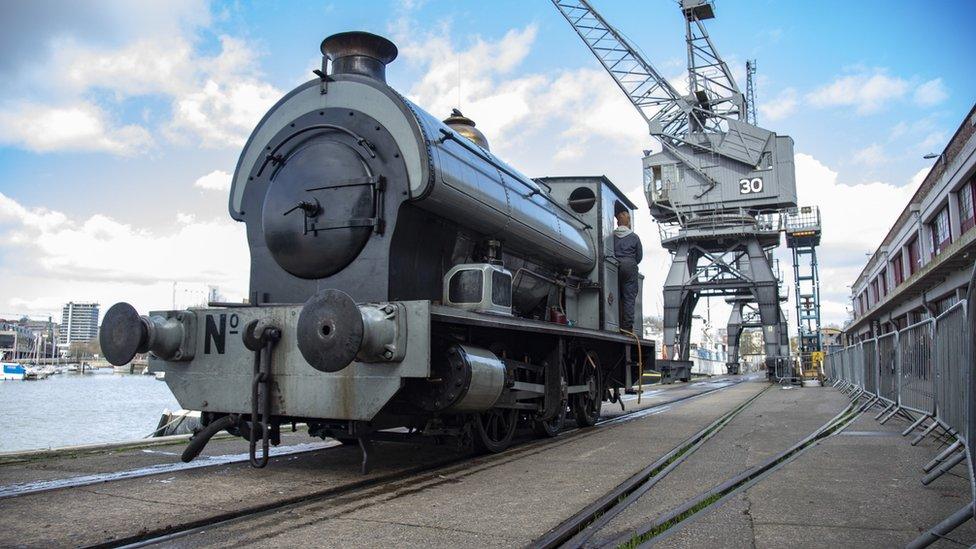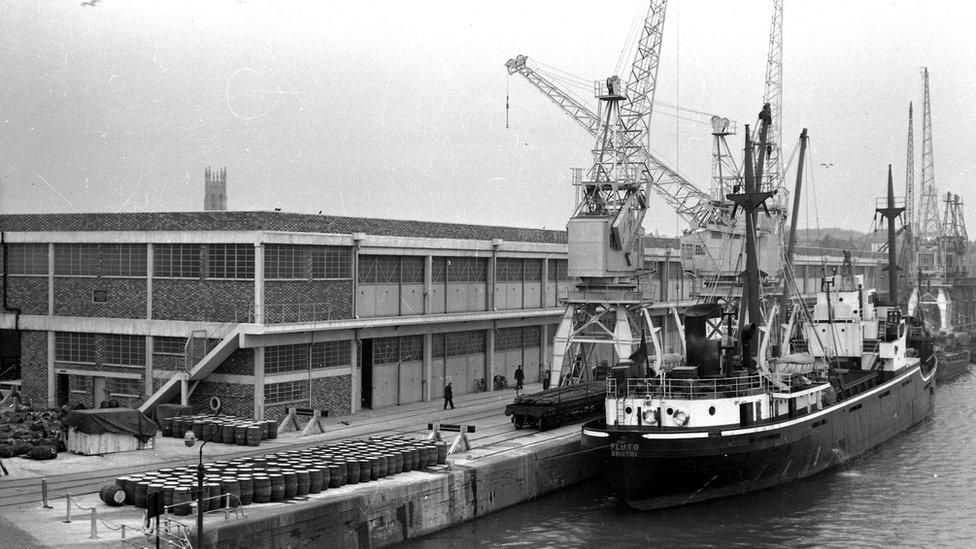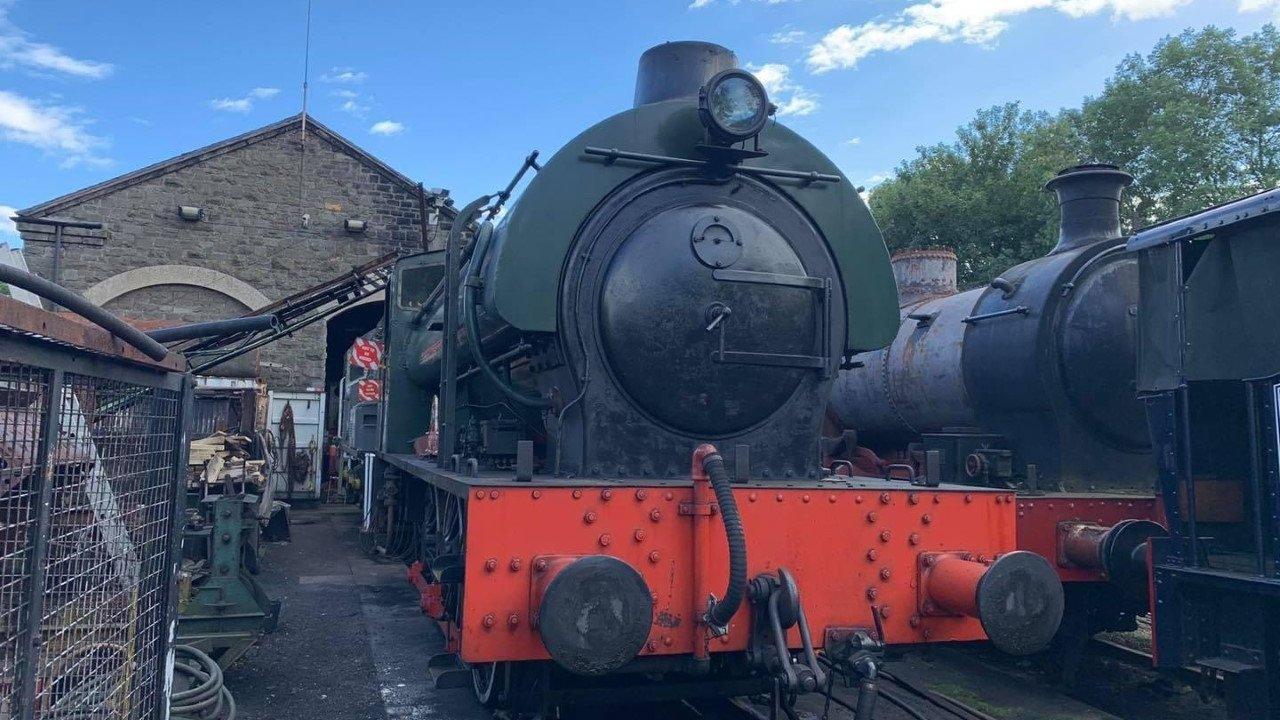Bristol Harbour Railway steams into its 150th year
- Published

150 years and still going strong - Bristol Harbour Railway's steam locomotive
The historic Bristol Harbour Railway has celebrated its 150th birthday.
The line was formally opened on 11 March 1872 by the Lady Mayoress of Bristol, Mrs Elizabeth Hare.
It was used to transport items arriving in the city by ship, including vital supplies during both world wars.
Now it is a heritage line popular with visitors to the city's quayside, and has been described as an "important part" of Bristol's history by one archivist.

The railway was once an essential link for transporting goods from ships arriving in Bristol
It was built by the Great Western Railway in the 1870s with the line originally running from Temple Meads, on through a tunnel under St Mary Redcliffe churchyard, over a steam-powered lifting bridge and on to Princes Wharf.
In the 1900s it was extended on to Wapping Wharf where the SS Great Britain is now docked.
Originally the steam train took supplies like coal, wood, meat and alcohol into the city centre, and became an essential transport link during the First and Second World Wars.
After a century as a goods railway, it was handed over to M Shed museum and has run as a heritage railway ever since.
Ray Barnett, head of collections and archives at M Shed, said: "It's an important part of the city's history and has become a staple attraction on the harbourside.
"The staff at M Shed, along with a vital team of dedicated volunteers, work tirelessly to keep the railway running and care for the two steam locomotives, Henbury and Portbury."
Trips on the railway were suspended during the pandemic.
Mr Barnett said the anniversary would be celebrated by having passengers back on board from Easter.

Follow BBC West on Facebook, external, Twitter, external and Instagram, external. Send your story ideas to: bristol@bbc.co.uk , external
Related topics
- Published3 February 2022

- Published12 August 2021

- Published8 May 2021
